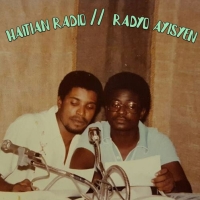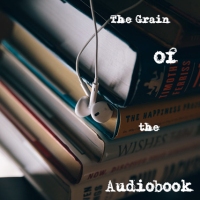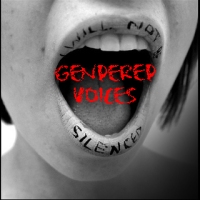Easy Listening: Spreading and the Role of the Ear in Debating

Photo courtesy of Sounding Out! intern, Sky Stage. All rights reserved.
As I write, my institution, the University of Denver, is gearing up to host the first of the 2012 Presidential Debates. The debate promises a polite and eloquent exchanging of reasons on matters of public concerns. This image of “the good man [sic] speaking well,” roughly represented by Obama and Romney, pervades popular culture representations of debate. While there are certainly some forms of debate that stress public reason, like Worlds style debate, most other competitive styles of debate, look and sound very different.
American “Policy Debate,” the type of debate I will explore today, is a high school and collegiate competitive activity where two-person teams argue the merits of governmental legislation. In every round there is an affirmative that advocates an action and a negative defending the status quo, or some alternative. The debate prompts, or resolutions, change yearly and produce research collections comparable to a master’s thesis. But, it is not the research that captures newcomers’ attention. No, it is the velocity that information travels. Indeed, highly successful debaters transform their voice into a high-speed information weapon, sometimes speaking up to 400 words per minute (wpm).
Nobody really knows who decided that speaking quicker than her/his opponents would be a viable strategy. Some allege that David Seikel and Mike Miller, a dominant team from the University of Houston in the late 1960s invented the strategy. However, Miller denies this fact, insisting that the practice of speaking quickly, or “spreading,” predated their success by a couple years. While it is difficult to pin down exactly when talking becomes spreading, studies indicate passive comprehension has a threshold of around 210 wpm. Simply put, spreading is a vocal practice that propagates more arguments than an opponent can rebut, forcing the opposing team into a strategic choice of conceding and/or inadequately responding to some positions.

Almost immediately after its introduction, spreading became a polarizing issue. While some alleged that speed undermined communicative argumentation, others applauded its ability to foster critical thinking. Rate of delivery became a site for what Douglas Ehninger called in 1958 the debate about debate: should debate be concerned with public reason or technical proficiency? Spreading figured prominently in these discussions because it circumscribed debate to the technical sphere, the quick pace precluding lay comprehension. As a site for cultivating what argumentation theorists Ron Greene and Darrin Hicks call “the ethical attributes required for democratic citizenship” (101), debate operates as an ideal problem space to inquire about the relationship between listening and judgment that underwrite argumentative exchanges.
Extracting meaning from a spread requires a trained ear that can delineate the nuance of tone, rhythm, code, and breathing, while translating these sounds into symbols that are then recorded onto a “flow” (a document where participants keep notes of the debate). This technical sphere of argumentation, then, requires what cultural historian Jonathan Sterne calls in The Audible Past: Cultural Origins of Sound Reproduction an “audile technique,” or a set of culturally defined listening practices. Here, spreading denotes not just rate of delivery, but encompasses a range of other practices that attend to the debate. Yoking velocity with technical proficiency, spreading requires an audile technique that attunes the ear to speed, while calibrating the viscera to quickly appraise each position espoused. Extending Sterne’s observations into an embodied theory of listening, I argue that spreading entrains visceral judgment that organizes expertise under the banner of “exchange-value,” instead of its veracity. Reflecting what Jodi Dean calls in Blog Theory: Feedback and Capture in the Circuits of Drive capitalism’s communicative style, I contend, audition in this case privileges flow over content.
Today, debaters are much faster than their 1960s counterparts. Take for example the championship round of this year’s (2012) National Debate Tournament (NDT). The 2012 topic debated the merits of the United States’ democracy assistance in the Middle East.
Finals – NDT 2012 Northwestern BK v Georgetown AM – 1AC + CX
In the speech linked to above, dubbed the first affirmative constructive (1AC), the speaker’s first words are easily audible, but as the seconds expire, the affirmative’s words increase in velocity; syllables collide and contort. The speaker pushes through, taking a split second to take a short, fast breath (called a clutch) before he begins his next word. To the seasoned ear, the voice is instructive; a slower, deeper tone signifying an assertion. also known as a “tag,” and a faster tempo indicating evidence. Out of this buzz, debaters’ are able to discern distinct phrases, like “Arab Spring,” “economic down turn,” and “nuclear war.” In 9 minutes the speaker outlined his advocacy, consisting of multiple scenarios for planetary extinction.
During the 1AC, the negative team is carefully listening, gathering the affirmative’s evidence, and translating the speech into symbolic shorthand, termed flowing. In addition to its purely functional use—to keep track of positions—the flow also provides third party adjudicator(s) a document to evaluate the debate.

Image of flow notes taken during a debate
After a period of questioning, the first negative speaker, linked to below, elaborates his positions: a procedural concern that the affirmative is outside the confines of the resolution; two philosophical objections (or critiques); two alternative courses of action that resolve the affirmatives exigencies, while conserving the president’s political capital, so Obama can push for Jackson-Vanik legislation; and finally direct responses to the affirmative position.
Finals – NDT 2012 Northwestern BK v Georgetown AM – 1NC + CX
Coupled with the “burden of rejoinder,” which dictates a conceded argument is a true argument, speed becomes a strategic weapon. The more positions, the more likely one will be missed, granting the other team an advantage. For example, failure to address the negative’s concerns about the Jackson-Vanik legislation means that the affirmative position would result in a US-Russian nuclear war culminating in extinction and probably losing the affirmative the debate. Even less dire claims exert force in the round. For instance, missing the relatively innocuous claim that Obama does not have political capital abrogates the negative’s whole Jackson-Vanik position. After all, what would be the point of Obama conserving capital, if he has none to begin with?
Debating thus requires a refined ear capable of quickly determining a argument’s merit, while allotting the proper amount of attention. If a claim is deemed irrelevant, the debater can focus on a more relevant position, keeping her/his ear piqued for beginning of the next position.

Debate team members listening to the flow at a 2009 Tournament at University of the Pacific; Image by Flickr User Inkyhack
This confluence of speed, evidence, time constraints, and a burden of rejoinder cultivates an instrumental relationship to expertise. Media theorist Jayson Harsin suggests in “The Rumour Bomb: Theorising the Convergence of New and Old Trends in Mediated US Politics” that these “conditions encourage a relationship of viewer to text (slogan, soundbite, fragment) which is essentially fiduciary, based on trust, not critical understanding”(101). Indeed, time constraints coupled with a proliferation of positions, produces a sound to listener relationship, where the veracity is assumed and significance is dictated by strategies, not the least of which is vocal. This is because there is simply not enough time to evaluate the credibility of each piece of evidence read. Patrick Speice and Jim Lyle, two debate coaches, explain that “Debaters have to be focused on the arguments being offered, have to be able to understand them very quickly, and they have to be able to discern which arguments are of the greatest significance for the round.” Evidence, then, is reorganized along a strategic continuum—the more likely an argument may help or hinder a team’s chances of winning, the more important it becomes. This can precipitate a “race to the margins,” where one side tries to find an obscure argument to beat back more probable analysis. This is not to say that one kind of argument is better than the other. But, the rationality used to organize the evidence relegates veracity to the epiphenomenal. This fosters an epistemic leveling, indexing expertise according to its exchange-value.
The repetitive nature of debate inscribes these listening habits into the body, shaping future interaction. Writing on the pious ear, cultural anthropologist Charles Hirschkind explains in The Ethical Soundscape: Cassette Sermons and Islamic Counterpublics, “patterns of sensory attunement configured through continuous practice of such a listening constitute an intensifying perceptual background for […]ethical agency and public reason”(28). Similarly, the practice of listening to debate rounds, along with the movement of the hands, quickness of thought, and so on are burned into an affective substrate, defining the horizons of future action. That is, through the repetition of debates, audile technique is entrained into motor memory, residing just below the conscious register of thought, acting as a potentiality. Most often, this listening technique is activated in the next debate round, the spread’s distinctive sound generating an anamnestic effect, activating the policy debate ear.
In sum, spreading proffers an audile technique concerned with the exchange-value of evidence, where the “best claim” is the one that wins the round. It entrains a technical mode of audition, aiding the debater in making quick decisions. This listening style underwrites a knowledge economy, where expertise becomes just another commodity that is bought, sold, and traded to support pre-formulated opinions. “Under communicative capitalism,” Jodi Dean writes, “an excess of polls, surveys, and assessments circulates, undercutting not only the efficacy of any particular poll or survey but the conditions of possibility for knowledge and credibility as such. There is always another survey, done by another group or association with whatever bias and whatever methodology, displacing whatever information one thought one had” (103).
—
Justin Eckstein is a doctoral candidate and former director of debate at the University of Denver. His work explores the intersection of listening, affect, and argumentation. Justin’s writing has appeared in Argumentation & Advocacy, Relevant Rhetoric, and Argumentation in Context. Currently, he is writing his dissertation on the micropolitics of podcasting in the post-deliberative moment.
5 responses to “Easy Listening: Spreading and the Role of the Ear in Debating”
Trackbacks / Pingbacks
- - March 24, 2016
- - October 7, 2012
- - October 6, 2012
- - October 6, 2012


















Great article! As a former high school and collegiate policy debater, I wonder if there is any research or analysis about whether the sound and intensity of high speed of policy debate has any effects on stress or anxiety levels; and all that comes with that.
Any competitive activity can be stressful, but I wonder if the speed of debate has any statistically measurable effect on the stress or anxiety of its participants. ie its stressful not only because you are trying to win, and not only because you are in an argument, but also because you are in a high speed argument hearing nuiance blasted at you at 400 wpm. Thats got to be stressful for others, I know it was for me!
Just looking at the culture of debate, and the culture of extremely hard work it breeds, leads me to believe there could be some connection between speed and all those debaters idiosyncrasies.
For instance why are so many debaters or ex debaters chainsmokers? Not just occasional social smokers or regular half a pack a day smokers, but like full on two or three packs a day or more type smokers. I started smoking at summer debate camp when I was only 14 years old after my freshman year of high school and was hooked instantly. I loved it. here were all these brilliant young teenagers, students academically near the top of their class, most of whom would later become lawyers, professors or teachers, and its not an exageration to say that in the 1990s almost half of them smoked. Many smoked alot. My the time I left a four week summer debate camp at Northwestern University I was already smoking between a half a pack to a pack a day. When Id ask older debaters who smoked if their cigarette smoking slowed them down in speaking so fast, they said the opposite, that it actually sped them up. That was all I needed to hear.
When I went home from debate camp I searched for a source to feed my debate inspired cigarette addiction and found a cigarette vending machine in the student union of the community college near my neighborhood and that was it. I felt like I was pretty much on my own most of the time, because my mom worked night shifts and weekends at the hospital, which I thought made her practically the perfect debate mother because I almost never saw her and could get away with whatever I wanted. Hanging out with older debate guys who smoked all the time made me feel like that cool sophomore debate girl who chainsmoked just like the varsity debaters. My debate chainsmoking too off and I never looked back. By christmas break of my sophomore year of high school I was smoking between a pack and a half to two packs a day. By my junior year of high school when I was just barely sixteen I was a committed two pack a day chain smoker and I had moved on to dating and hooking up with older guys who were college debaters, sometimes juniors or seniors in college who were twenty one or twenty two years old. I loved it, all of it. debate gave me a rush, and the faster Id read the better people thought I was.
How much of that was just normal teenage angsty behavior compared to specifically caused by high speed debate is hard to say. But when I debated at local in town tournaments where I usually had to go slower because we had parents/ “lay” judges, I didn’t feel the need to smoke as much. At bigger regional or national tournaments smoking just seemed so normal, it made me feel cooler, and in my mind I believed smoking somehow made me faster, even thought I was already developing a smokers cough. But I loved the whole scene in debate, I even loved the dressing up part. I absolutely loved having excuses to wear high heels, although many debate girls did not. Some of those debate girls practically dressed like they were going to a penecostal church, but not me. I usually wore close fitting pencil skirts and high heels without pantyhose and cute low cut blouses that must have made me look like I was trying dress up for a sexy secretary costume party, and I loved the attention I got from it. That was almost the case right from the start when I went to my first debate tournament ever as a freshman and forgot my pantyhose and got horrible blisters from where my dress shoes that were almost a size too big rubbed up and down against the bare skin on the backs of my heels all weekend; when an older varsity debate girl at the tournament from another school saw me putting bandaids on my bare feet and said my shoes looked cute without hose, but that I should wear heels because it was easier to tap your foot in to keep a rhythm and talk faster. From then on it was all high heels, all the time, no pantyhose, no socks, just go fast, go. The sound of my high heels clicking against high school linoleum floors in a quarter beat rhythum helped me keep the pace and spread faster and faster.
The nervousness and anxiety from the big regional or national tournaments keyed me up and made me push myself even faster and faster. By the time I was a senior in high school I was probably smoking almost three packs a day. But I also wasn’t eating right. It started my junior year of high school, when before one big elimination round I felt so nervous I had to run to the bathroom and throw up. It made me feel better and I somehow went even faster than usual and we won. Then that was it. It must be that I debated better on an empty stomach. So from then on, when I was at debate tournaments, I either didn’t eat at all, or I would go to the bathroom and throw up right after eating anything, then sneak outside behind the school to smoke a few cigarettes before the debates started. The fact that it helped me keep the weight off and stay skinny was an added benifit too. Thats how bulimia became a part of my debate life though. Because I thought it helped me with the stress and it made me feel faster. The skinnier I got, the faster I felt I could go.
Everything about debate was speed. speed. speed. I would do nearly anything to get faster. So the summer before my senior year of high school when I was spending two months away at Dartmouth debate camp, chainsmoking through three and, gasp, sometimes four packs a night trying to stay awake to do ever more research and “cut more cards”, I had a roommate suggest I try amphetamines like Adderall. She got the pills from her brother who had ADD, and as soon as I tried them I instantly loved them. Amphetamines made everything about debate better, and obviously faster. I definitely talked faster. I also felt like I thought faster. Like I could deo debate work, like research and writing argument breifs longer and faster. When I got back from debate camp I knew I needed to get more, so told my mom I was having trouble focusing in school so she got me an appointment with a psychiatrist who I told about not being able to focus, particularly in debate because everything moved so fast, so after a bit of acting on my part she finally said I had borderline ADD and gave me a prescription for Adderall. Speed. Just what every chainsmoking bulemic seventeen year old debate girl needs. More speed.
In my head all of it somehow fit together. Speed was Everything. The more the better. I spread my way to a college scholarship and tried to keep up the pace for as long as I could. In college debate, chainsmoking three or four packs a day somehow seemed normal to me; even though it probably seemed excessive even to the other smokers on the squad. But when I got into college debate, everyone was fast like me. And most of them were better researchers. The stress and pressure mounted. It took more adderall for me to try to keep up with the intense pace of work that everyone else was keeping. The more adderall I took the less it worked, the more I chainsmoked, all going down an empty hole. Like many stress riddled teenage girls trying to make the transition to college I always felt self conscious about how I looked. Short skirts and high heels without pantyhose wasn’t enough by itself, because college campuses are full of prettier party girls looking for a good time. The pressure to fit in effects everyone, not just college freshmen girls, but it was all the excuse I needed to try to control the few things I could, starting with my body imagine. I could always eat less, throw up more, smoke more cigarettes and take more pills, to help me keep that coveted size 0 and keep up with the living fast lifestyle. Backsliding into futile attempts to maintain the nonstop party girl image I thought I wanted to have, leading to far to many uncomfortable sexual encounters, all too frequently unprotected, only made things worse. The speed and pressure of college debate only led me to push my addictions farther and farther. Three years into it, trying to keep up with everything at top speed finally took its toll, and I just broke down. Overdosing on speed my junior year of college was just the first warning sign, and was not the last trip Id have to make to the hospital either. Overall the speed of everything, trying to juggle college debate, the college party scene, was just too much to take and I never really was able to recover fully, at least not to where I was.
The speed was finally too much. I had to quit the debate team my junior year of college before the district qualifiers for nationals, so that I could go into rehab. Id spend the next three and a half years in and out of rehab, struggeling with addictions, substance abuse, bulemia, anorexia, and depression. Like most girls in rehab, fighting with drug addiction was hard enough, I gave up on there being any real hope of ever cutting back on my incessant chainsmoking. The cigarettes were my best friends in rehab, and I couldn’t leave them behind when I was already having to loose so much. At the time I felt like my debate friends caused it, then abandoned me. But really it was just me the whole time.
That was over twelve years ago. Even after all that, I still miss debate so much. I loved the speed of it. Although I try to take things slower now when I can, I think in a way the speed of it really helped me prepare for the speed of life. Its just that I took too much of the speed at once and let it control me. Fortunately Ive finally managed to get off the amphetamines and Ive been eating alot healthier than I used to. Although I never really made any progress on quitting smoking, and I don’t suspect I really ever will, at least Im able to get by on about two and a half packs a day most of the time. Still with all of that, and all that I put myself through, I loved the debate game. I loved the speed of it. And although I’d prefer to try to do a few things different, overall I’d still do it all again if I could. Debate was a wonderful game and it still is.
LikeLike